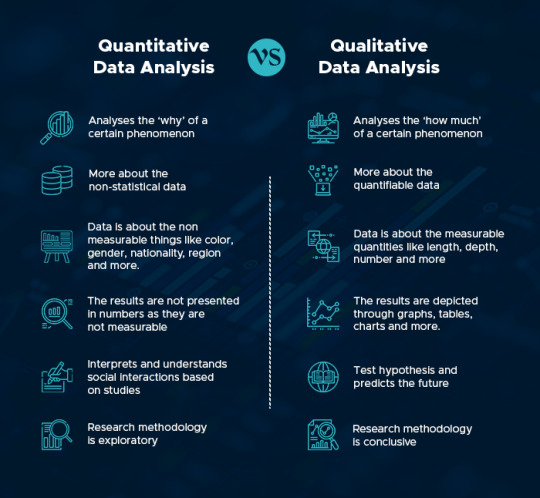#quantitative and qualitative research
Text

Did you know that India's dairy market is projected to reach $124.93bn in 2023? That's a growth of over 8% from 2022!
The Indian #dairy market is one of the most dynamic and fastest-growing in the world. Learn more about this exciting market in our latest article.
Click the link to read the full article and learn more about the future of the dairy business in India. - https://www.instagram.com/p/CvZLae8v80L/?img_index=1
#research gates#researchers#market researchers#qualitative research#action research#operations research#quantitative and qualitative research#consumer research#audit company#experimental research#market research analyst#business research#Research Consultants#Researchers#market research consultants#Market Researchers#Audit Company#Auditing Company#Company Audit#mystery shopping#secret shopper
0 notes
Text
Sociological Theory and the Canon
It's Sociology Sunday! Today we're talking theory.
What is sociological theory?
Sociological theory is a set of interrelated ideas that allow for the (1) systematization of knowledge of the social world (2) the explanation of that world, and (3) predictions about the future of that world, and which are falsifiable through empirical research.
Theory provides a possible answer to questions like, “why did this happen?” or, “why did they do that?” This means theory is speculation, not fact, but unlike “ideas” generally, theory is speculation driven by a more formal, systematic, process, which incorporates the work of previous theorists and research findings.
The Sociological Canon
Some theories are more popular than others. Some theories, while unpopular, are considered “pivotal” to the foundation of sociology. The “sociological canon” helps us identify the “popular” and “pivotal” theories.
The sociological canon is defined as the theories, ideas, and texts that are widely considered as the most important in the field of sociology (Ritzer and Stepnisky 2018)

“I’m not a regular mom theory, I’m a cool mom theory!”
The canonized theories are sort of like the “cool mom” in Mean Girls (oshowing my age here, the original 😘) – others exist, but these are the ones we tend to think of first when we think of “the mom in Mean Girls” (or, in this case, “sociological theory”).
Critics of the canon argue that the canon is not a neutral construction; rather, it is affected by power and the politics of the theory. To some degree, they are right.
The field of sociology has historically privileged theories that have testable hypotheses, known as “positivist” theories, and theories produced by white men faculty. In this, we can see that the canon, and relatedly, the field of sociology, have tended to reflect power structures in society more broadly. Which means that, yes, technically the canon is full of theories created by old white dude philosophers in Europe in the late 1800s to early 1900s. Nowadays, though, most sociologists agree that the canon includes much more than Marx, Weber, and Durkheim.
Meaning the canon is now considered to include theories from other classical theorists writing during the same time as Mark/Weber/Durkheim, like W.E.B. DuBois and Ida B. Wells. The canon has also expanded in the last 40 or so years to include contemporary theories, such as emancipatory, feminist, and queer theories. These expansions were important steps towards accounting for the reality of the field as it presently exists, and to correctly reflect the field’s foundations which expand far beyond whiteness, masculinity, and western imperial culture. Presently, women make up the (quantitative) majority of sociology faculty, and while this women majority was historically white, the number of women, including and especially women of color, in sociology continues to grow, substantially outpacing white men.
Sociological Theory and Empirical Research
Empirical research is rooted in theory.
Sometimes these theories are the driving force behind research, constituting the research question for an empirical study. You begin with the possible answer to the question, the theory, and you investigate to see if it holds up–your results may call into question some or all of the theory’s propositions. This is called “deductive reasoning.”
Theory is not always the starting point of research, though. Sometimes theory is generated from research. This process is called “inductive reasoning.” In this case, you begin with observations, draw conclusions, and from those conclusions, generate new ideas about the social world.
Deductive reasoning is often linked with quantitative research. Quantitative researchers usually have some idea of theory before forming their research question, and some quantitative research is constructed with the goal of testing (falsifying) theoretical propositions. Qualitative research, in contrast, often uses inductive reasoning, beginning with observation and developing theory as part of the study’s conclusions. This is not always the case with qualitative research, though.
One approach to creating contemporary sociological theory assumes the “best” theory is constructed via inductive reasoning, and thus, begins with observation, absent of pre-existing ideas. This is known as a “grounded theory” approach, because it produces theory that is “grounded” in observation of tangible facts instead of based upon pre-existing abstract ideas. The sociologists Barney Glaser and Anselm Strauss are often credited with popularizing the “grounded theory” approach, which they outlined in their 1967 book “The discovery of grounded theory: Strategies for Qualitative Research”.
Other approaches to qualitative research, like content analysis, may start with theory or observations.
Summary:
instagram
Watch full lecture:
#sociology#science#social science#higher education#professor#research#empirical research#sociology sunday#sociological theory#theory#deductive reasoning#inductive reasoning#qualitative research#quantitative research#grounded theory#marx#durkheim#weber#dubois#classical#contemporary#teaching#lesson#studyblr#college#university#Instagram
3 notes
·
View notes
Text
no one in my family reps my humanities degree 😞
#me: I’m doing an MSc next year#them: they’re calling silly humanities a SCIENCE NOW?? this is everything wrong with society#me with r studio open making multivariate linear regression analyses from qualitative data: ….#*quantitative data even LOL#AAAAAA#and bc I went to American high school I have AP biology I did honours Chem in final year I did calculus#just. and almost all my friends have stem degrees and I can talk to them abt their degree content#I read medical journals usually psychology/psychiatry for fun like it’s sooooo#and my dad works in medical research and alwsys offloads all the technicalities of that industry to me#just so frustrating not being taken seriously 😭#I have THEE most competitive humanities degree to get into from the best humanities uni in the country and theure like nah fake degree
4 notes
·
View notes
Text
just conducted a successful aging assessment on an old person for my psychology practical. god, do people have experiences.
#mental health#psychology student#mental health awareness#mental health support#mental health reminders#coping#reminders#therapy#positivity#kindness#wellness#academia#psychology major#qualitative research#quantitative research#research
5 notes
·
View notes
Text
Precision Insights: Expert Quantitative Market Research Services
Our Quantitative Market Research Services help you quickly gather insights from our panellists and understand the changing consumer behaviour. Using our comprehensive services, we find the answers to the most of your questions! Follow this link to know more https://insighttellers.com/services/quantitative-research-market

#Quantitative Market Research Services#Qualitative Research#Translation#Survey Programming#Data Collection & Analysis#Secondary Research#Panel Aggregation#Contracted Work
2 notes
·
View notes
Text
Measuring Change: Methods and Best Practices for Accurate Results
Measuring change is crucial in many fields, including business, science, education, and personal growth. It helps track progress, identify areas of improvement, and make informed decisions. However, measuring change is not always straightforward, and it involves several factors that can impact the accuracy of the results. In this blog post, we will explore common methods for measuring change,…
View On WordPress
#measuring change#mixed methods#pre- and post-test designs#qualitative methods#quantitative methods#randomized controlled trials#research methods
2 notes
·
View notes
Text
New year, good time to strengthen your retirement income strategy

There’s something about the start of a new year that gives us the impetus to make a change. Often, the holiday downtime triggers a new-found resolve to “get important affairs in order” – thus a perfect time for super funds to activate member engagement for 2024.
Effective engagement can only be built on a sound knowledge base. This takes us to the critical question: “How well do you know your members?”
Last year, a joint APRA and ASIC review of the approach by Super funds to new obligations under the retirement income covenant found fundamental gaps that need to be filled.
The review identified Understanding Members’ Needs as a key gap in designing a retirement income strategy that is appropriate for members. It found that 12 out of 15 assessed Registrable Superannuation Entity (RSE) licensees recognised they had gaps in critical member data, both around members’ financial positions and income needs in retirement. Yet only four had developed robust plans to address these data gaps to enhance their strategy.
“Closing that knowledge gap, from a customer experience perspective, is easier than you may think,” said CSBA CX Director of Finance, Sam Monteath. “But it does require strategic planning, collaboration, and commitment.”
What to do:
Audit your data
Trustees hold a massive amount of data, possibly stored within departments and not visible across the organisation. Get clarity on what data you hold and identify the gaps that impede you from truly understanding your members. Engage expert assistance if needed.
Share existing knowledge
This is an opportunity to remove information silos that prevent data from being shared across the organisation. Knowledge is power, and teams are empowered when there is collaboration and possibility to leverage data to inform strategy.
Address the data gaps
Draw on a range of data sources, both internal and external, to deepen member understanding. Use new insights to broaden membership sub-classes, beyond age and superannuation balance, and develop needs-based cohorts.
Collecting segment-based insights does not have to be expensive. A qualitative methodology is a cost-effective way to obtain deep knowledge that can be applied across the member base. We see strong participation across cohorts, even those members who are already retired, as they are often unprepared, unaware of their options, and seek guidance.
Design best-practice research methodology
Bespoke retirement research design can explore more, extract more, and identify more pertinent insights that can have far-reaching outcomes – for branding, marketing, and engagement.
This is powerful intel for trustees, enabling them to become part of the consideration set when members are seeking guidance and advice. By developing relevant, specific tools and materials, trustees have an opportunity to support members, preventing their reliance on external advice.
Our approach is fully compliant with research and privacy standards. Participants are clear on why information is being collected, how it will be stored, and that all information remains confidential.
Where funds can make a difference
Monteath: “We know that members look to their funds for guidance because this is an area in which many members have little knowledge or understanding.”
“We also know that those in pre-retirement struggle to balance current financial priorities with the long-term planning for the future. They know they want to maintain their lifestyle in retirement, but don’t understand what this means in terms of numbers or have a plan to get there.”
Super funds have a tremendous opportunity and responsibility to empower and educate members around their financial needs for retirement. However, any meaningful guidance must start with gaining deep knowledge of their unique circumstances.
How CSBA research specialists can help
As CX experts, CSBA offers bespoke solutions to meet our clients where they’re at. Our qualitative and quantitative research will help develop a solid, deep understanding of members’ needs and nuances at a granular cohort level. This enables trustees to apply different strategies and embrace the true intent of the retirement income covenant.
Successful strategic planning starts with deep member insights.
To find out more, email [email protected]
0 notes
Text
What Is Trend Analysis in Research? Types, Methods, and Examples
Explore the essence of trend analysis in research, encompassing its diverse types, methodologies, and real-world examples. Unravel the significance of tracking trends to glean insights and make informed decisions in various fields.
#Trend analysis#Research trends#Analyzing trends#Trend analysis definition#Types of trend analysis#Methods of trend analysis#Conducting trend analysis#Utilizing trend data#Research trend identification#Trend spotting#Trend forecasting#Trend analysis techniques#Trend analysis tools#Trend analysis models#Market trend analysis#Statistical trend analysis#Qualitative trend analysis#Quantitative trend analysis#Longitudinal trend analysis#Cross-sectional trend analysis#Trend analysis in research#Trend analysis in data science#Trend analysis in social sciences#Trend analysis in economics#Trend analysis in business#Trend analysis in marketing#Trend analysis in finance#Trend analysis in healthcare#Trend analysis in technology#Trend analysis examples
0 notes
Text
Unimrkt Research: Your Premier Source for Market Research Services
Unimrkt Research, a leading online market research company with offices in India, UK, and US, offers comprehensive market research services to various sectors worldwide.
Read more: https://www.unimrkt.com
#primary market research services#quantitative market research services#qualitative market research services
1 note
·
View note
Text

Qualitative research is a sophisticated methodology that explores the complexities of people's attitudes, motivations, and actions. Qualitative research provides rich contextual insights that are not possible to obtain from quantitative data alone. Methods that are used to achieve this include focus groups, interviews, and observations. It provides a thorough grasp of individuals or groups by examining the underlying causes of behaviours and perceptions. Businesses can ensure alignment with the needs and preferences of their target audience by making informed decisions regarding product development, marketing strategies, and organisational improvements thanks to this depth of understanding.
Contact us to know more about it.
Visit- https://snwareresearch.com/contact/
#qualitative research#qualitative analysis#qualitative data#quantitative research#market research#research services#focus group#online panels#market insights
0 notes
Text
Unveiling Excellence: MEB Research - Your Beacon for Policy Research Services in Portland and Qualitative Analysis Consulting in Oregon
Welcome to MEB Research, your unparalleled destination for cutting-edge Policy Research Services in Portland and top-notch Qualitative Analysis Consulting in Oregon. In a world where insightful decision-making is paramount, MEB Research stands as the beacon of excellence, offering a unique blend of expertise and innovation.
Unmatched Policy Research Services in Portland
At MEB Research, we pride ourselves on delivering Policy Research Services Portland that transcend the ordinary. Our dedicated team of seasoned researchers is committed to unraveling the complexities of policy landscapes, providing our clients with comprehensive insights that drive informed decision-making.
The MEB Advantage
Strategic Insights: Our team employs a strategic approach, delving deep into the intricacies of policy frameworks to unearth hidden opportunities and potential challenges.
Data-driven Analysis: MEB Research doesn't just offer insights; we provide data-driven analysis, ensuring that every piece of information is grounded in empirical evidence.
Industry Expertise: With years of experience across diverse industries, our researchers bring a wealth of knowledge, enabling us to offer tailored solutions that align with your specific needs.
Elevating Decision-Making with Qualitative Analysis Consulting in Oregon
When it comes to Qualitative Analysis Consulting Oregon, MEB Research sets the standard for excellence. Our consulting services go beyond the surface, providing a nuanced understanding that empowers our clients to make informed decisions with confidence.
MEB's Approach to Qualitative Analysis
Holistic Understanding: We believe in understanding the big picture. Our qualitative analysis doesn't just scratch the surface; it delves deep into the nuances, offering a holistic understanding of the situation.
Customized Solutions: Every client is unique, and so are their challenges. MEB Research crafts customized solutions, ensuring that our qualitative analysis addresses your specific needs and goals.
Future-oriented Insights: Anticipating future trends is crucial. MEB's qualitative analysis doesn't just focus on the present; it provides insights that help you stay ahead in a rapidly evolving landscape.
Why Choose MEB Research?
1. Proven Track Record
MEB Research has a track record of success, with numerous satisfied clients who have witnessed the transformative power of our services.
2. Innovation at its Core
We embrace innovation, staying at the forefront of research methodologies and technologies to provide you with the most relevant and cutting-edge insights.
3. Client-Centric Approach
Your success is our priority. MEB Research adopts a client-centric approach, ensuring that our services are tailored to meet your unique requirements.
Outranking the Competition
In the realm of Policy Research Services and Qualitative Analysis Consulting, MEB Research outshines the competition through a combination of expertise, innovation, and a relentless commitment to excellence. Our comprehensive services not only meet but exceed industry standards, setting us apart as the go-to choice for organizations seeking unparalleled insights.
Conclusion
In the dynamic landscape of policy and analysis, MEB Research emerges as the trusted ally for those who seek excellence. Our commitment to delivering unparalleled Policy Research Services in Portland and Qualitative Analysis Consulting in Oregon positions us as the undisputed leaders in the field. Choose MEB Research for a journey into a realm where insights drive success.
#Research Consulting Services Portland#Program Evaluation Firm Portland#Strategic Research Consultants Portland#Evaluation Methodology Experts Portland#Data Analysis Consulting Portland#Policy Research Services Portland#Impact Assessment Consultants Oregon#Program Effectiveness Evaluation Oregon#Quantitative Research Solutions Oregon#Qualitative Analysis Consulting Oregon
0 notes
Text
Finding the Right Goals for Your Personal Growth
In a society that is often driven by quantifiable results and quantitative accomplishments, Qualitative goals are sometimes overshadowed. But these goals have immense value for cultivating personal growth, improving well-being and creating meaningful experiences. We will examine what these goals are, why they're important, and the best way to set them and achieve them in order to reach your potential.
Understanding Qualitative Goals:
Quantitative goals focus more on numerical metrics than subjective values and qualities. The quantitative goals may be measurable and tangible, like a weight loss goal or revenue target. However, the qualitative goals focus more on personal development and growth. The goals are focused on traits like creativity, resilience, empathy and fulfillment. This emphasizes the process of personal growth and development.
Qualitative objectives are essential:
Promote Personal Development: Quality goals are catalysts to personal development, as they encourage people to examine their values, aspirations, and passions. Self-awareness and resilience are promoted, as well as a better understanding of strengths and weaknesses.
Enhancing well-being: Achieving qualitative goals may lead to greater satisfaction and a sense of wellbeing. When happiness, inner peace and fulfillment are prioritized, people can live more harmoniously and in balance, regardless of the external conditions.
Nurturing Internal Motivation: While quantitative goals are dependent upon external motivation, or even validation, the pursuit of qualitative goals is based on intrinsic motivation. Personal growth and improvement become their own rewards, resulting in sustained efforts and commitment.
Promotion of Holistic Achievement: Qualifying goals can encourage an individual to embrace a holistic success approach, which encompasses physical, relational, and emotional aspects. Individuals can feel more fulfilled and satisfied by prioritizing quality and experience over outcome.
Setting Qualitative goals and Pursuing them:
Consider your passions and values. What do you admire most about other people? What do you desire to experience in your own life and why? Aligning your qualitative goals and intrinsic motivations will ensure that they are authentic.
Define Specific Quality or Experiences: List specific experiences, qualities or skills you would like to improve or develop. Your goals should be expressed in qualitative terms, whether it is to foster creativity, cultivate mindfulness or deepen relationships.
Setting Intentions and themes: Instead of setting specific goals or outcomes, focus on your intentions or themes. Instead of setting a goal to attain a particular level in your career or to be successful, you can set an intent to prioritise growth, education, and fulfilment in your professional journey.
The Journey is the most important thing to do. It's the best way to embrace the growth of your personal self and the discovery that occurs when you pursue qualitative goals. Celebrate the small victories. Learn from the setbacks. Be open to new opportunities.
Regularly Reflect and Adjust: Periodically review your progress toward your qualitative goals, and make any necessary adjustments. You should consider whether the current goals you are pursuing align with evolving values and ambitions, and make any necessary adjustments.
Practice self-compassion. Treat yourself with kindness as you strive to achieve your goals. Accept that it takes effort and time to achieve growth. Be kind and compassionate with yourself in difficult or doubtful moments.
Quality goals are a great way to achieve personal fulfillment and happiness. Individuals who prioritize qualities, experiences and intrinsic motives embark on a journey to self-discovery. By empowering individuals through reflection and mindful action and an authentic commitment, qualitative goals help them unlock their true potential, creating a meaningful and purposeful life. Let qualitative goals be your guide to a better and more fulfilling life.
1 note
·
View note
Text
#Insight Manager#UNICEF UK#London#Market Research#Qualitative Research#Quantitative Research#Desk Research#Data Analysis#Insight Analysis#Evidence-based Decisions#External Research Projects#Audience Understanding#Innovation#Professional Relationships#Collaboration#Online Application#Permanent Role#Part-time Opportunity#Flexible Working#Office Space#Training#Learning Opportunities#Diversity#Equality#Inclusion#Flexible Working Requirements#Criminal Records Check#Charity#Children's Rights.
0 notes
Text
A Comparative Analysis of Qualitative and Quantitative Research Methods
Learn about the key differences between qualitative and quantitative research methods for small businesses in this comprehensive blog. Explore how each approach offers unique insights and uses.
0 notes
Text
Qualitative Data Analysis: Step-by-Step Guide (Manual vs. Automatic) - Insights Opinion
Qualitative data analysis refers for a process of gathering, structuring and interpreting qualitative data to understand it’s presentation. Click Insights Opinion now!

0 notes